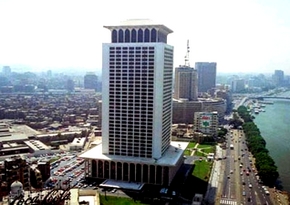 The Egyptian Foreign Ministry is angry at U.S. criticism over the arrest this week of dozens of pro-democracy demonstrators who marched outside parliament on Tuesday to call for constitutional reforms ahead of the 2011 presidential elections.
The Egyptian Foreign Ministry is angry at U.S. criticism over the arrest this week of dozens of pro-democracy demonstrators who marched outside parliament on Tuesday to call for constitutional reforms ahead of the 2011 presidential elections.
A day after the confrontation between riot police and protesters, State Department spokesman P.J. Crowley expressed U.S. concerns over the arrests, adding that Egyptians should be able to participate in the political process to determine who will be eligible to run in the upcoming elections.
The Egyptian government regarded the criticism as high-handed meddling. Foreign Ministry spokesman Hossam Zaki said that "Egyptians don’t accept that foreign governments speak on their behalf. . .The [American] remarks, without clear justification, shifted from talking about the arrests to other internal political issue in an unfamiliar pattern which is not accepted by Egypt."
More than 30 activists were arrested and others severely beaten by plainclothes police officers during a demonstration organized by the April 6 youth movement. The group was supporting constitutional amendments called for by Mohamed Baradei, a potential presidential candidate and former head of the United Nation's nuclear watchdog.
Authorities said they released those who were arrested but added that they had been banned and the march was illegal. The incident was condemned by Egyptian and international human rights organizations, some of whom sent a letter urging U.S. secretary of State Hillary Clinton to press the Egyptian government for democratic reforms.
Egypt has been under emergency since President Hosni Mubarak came to power after the assassination of Anwar Sadat in 1981. Opposition figures such as the April 6 movement are hoping to pressure the regime into amending the constitution to ease restrictions that would allow independent candidates, such as Baradei, to run against the ruling National Democratic Party's nominee in 2011.
Mubarak, 81, who recently underwent gall bladder surgery, is yet to announce whether he will take part in the elections. His son, Gamal, head of the NDP's politburo, is seen as likely to be the party's nominee.



